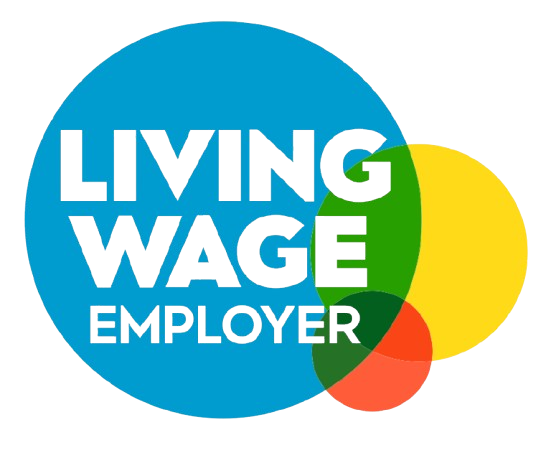Stay updated with 2buy2 Energy News on the latest developments in the UK energy market.
Labour's Bold Move on North Sea Oil and Gas Licences
In a decisive and controversial step towards achieving net-zero emissions, Labour has announced a ban on new and processing existing North Sea oil and gas licences. This move, spearheaded by Ed Miliband, has sparked considerable debate. Notably, it includes blocking pending applications from 2022, a deviation from the party’s initial pledge to halt only new licences without revoking existing ones. This policy affects a limited number of applications from three companies, highlighting Labour’s commitment to prioritising environmental goals over traditional energy production.
Economic Implications and Industry Reactions
Critics argue that Labour’s policy could have significant economic repercussions, particularly as the UK continues to rely heavily on fossil fuels during the transition to renewable energy. The decision to withdraw support for the Cumbrian coal mine further exemplifies Labour’s firm stance on reducing fossil fuel usage, despite immediate economic and employment concerns. This could lead to higher energy prices in the short term, presenting challenges for both consumers and the industry.
Gas Storage and Supply Dynamics
Over the summer, slower growth in gas storage has helped ease pre-winter supply concerns in the UK. This cautious approach has the potential to stabilise gas prices. Additionally, new European LNG terminals in Italy and Germany are set to come online in 2025, which will improve Europe’s supply situation and help mitigate the impact of reduced Russian gas flows.
Market Sentiment and Future Projections
The ongoing hurricane season in the US and continuous heatwaves in Japan could stir bullish sentiment if the LNG market tightens. Labour’s ban on new and processing North Sea gas and oil licences adds to market uncertainty, potentially leading to tighter future supply and providing bullish signals to gas futures.
Renewable Energy Developments
In a positive shift for renewable energy, Labour has ended the Conservative de facto ban on onshore wind farms. This move signals an increase in renewable energy capacity and aligns with the party’s broader environmental goals.
UK Carbon Contracts and Offshore Wind Targets
UK carbon contracts have come under bearish pressure in recent trading weeks, influenced by a strong correlation with baseload markets. Concerns have also been raised over EDF’s funding and long-term stability as the company struggles to secure long-term contracts with industrial customers. This financial instability impacts their ability to maintain ageing nuclear reactors.
Furthermore, the UK needs to secure 10GW of offshore wind projects this year and next year to meet the 30GW offshore wind target by 2030. However, only 3-5GW is projected to be secured this year, putting the UK’s renewable targets in jeopardy.
Energy Price Impacts and Consumer Concerns
Labour’s stringent policies on fossil fuel usage, while environmentally motivated, may lead to higher energy prices in the short term. This poses significant challenges for consumers who are already grappling with rising living costs. The energy industry must navigate these changes while balancing economic viability with the transition to greener energy sources.
European Energy Landscape and Future Outlook
The upcoming LNG terminals in Italy and Germany are expected to bolster Europe’s energy supply, providing a buffer against reduced Russian gas flows. This development is crucial for stabilising the European energy market and ensuring a steady supply during peak demand periods.
Strategic Energy Planning
Strategic energy planning is essential as the European energy landscape evolves. With the anticipated completion of these LNG terminals in 2025, Europe can expect a more diversified and secure energy supply. This will help mitigate risks associated with geopolitical tensions and supply disruptions, contributing to a more stable energy market overall.
Hurricane Season and Heatwaves: Market Implications
The current hurricane season in the United States and ongoing heatwaves in Japan are critical factors that could influence global LNG markets. Natural disasters and extreme weather events typically disrupt energy supply chains, leading to tighter markets and higher prices. The LNG market, already sensitive to such disruptions, may experience increased volatility, further complicating the global energy outlook.
Labour's Renewable Energy Policies
Labour’s decision to lift the Conservative ban on onshore wind farms marks a significant shift in the UK’s renewable energy strategy. This policy change is expected to accelerate the development of onshore wind projects, contributing to the UK’s renewable energy capacity and reducing reliance on fossil fuels.
Challenges and Opportunities
While this move is a step forward for renewable energy, it comes with its own set of challenges. Securing financing, obtaining planning permissions, and overcoming local opposition are significant hurdles that need to be addressed to ensure the successful implementation of onshore wind projects. However, the potential benefits in terms of job creation, economic growth, and environmental sustainability are substantial.
Offshore Wind Targets and Renewable Energy Goals
Meeting the UK’s ambitious offshore wind targets is critical to the country’s renewable energy strategy. With a target of 30GW of offshore wind capacity by 2030, significant investments and project approvals are needed. However, the current projection of securing only 3-5GW of offshore wind projects this year falls short of the necessary pace.
Strategic Measures to Accelerate Offshore Wind Development
To accelerate offshore wind development, the UK government and industry stakeholders must collaborate on several fronts. Streamlining permitting processes, providing financial incentives, and fostering innovation in offshore wind technology are key measures that can help achieve the 30GW target. Additionally, addressing grid infrastructure challenges and ensuring efficient grid integration of new wind capacity are crucial for maximising the benefits of offshore wind.
Economic and Consumer Impacts
Labour’s environmental policies, while aimed at reducing carbon emissions and promoting renewable energy, have significant economic implications. Higher energy prices, driven by reduced fossil fuel production and increased renewable energy investments, pose challenges for consumers and businesses. Balancing environmental objectives with economic stability is a complex task that requires careful policy design and stakeholder engagement.
Support Mechanisms for Consumers and Businesses
To mitigate the impact of higher energy prices, the government can implement support mechanisms such as subsidies for low-income households, tax incentives for energy-efficient practices, and financial assistance for businesses investing in renewable energy. These measures can help ease the transition to a greener economy while protecting vulnerable consumers and ensuring economic resilience.
Conclusion
Labour’s decision to ban new and processing existing North Sea oil and gas licences, coupled with its focus on renewable energy, marks a significant shift in the UK’s energy policy landscape. While this approach aligns with long-term environmental goals, it presents immediate economic challenges and market uncertainties. The slower growth in gas storage, the introduction of new European LNG terminals, and the potential impacts of natural disasters on global energy markets add to the complexity of the current energy scenario.
Achieving the UK’s renewable energy targets, particularly in offshore wind, requires concerted efforts from the government, industry, and stakeholders. Addressing EDF’s financial stability and ensuring the role of nuclear power in the energy transition are also crucial elements of a comprehensive energy strategy. As the UK navigates these changes, balancing environmental objectives with economic stability remains paramount.







